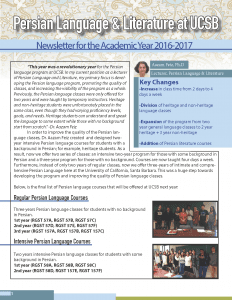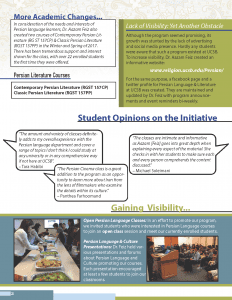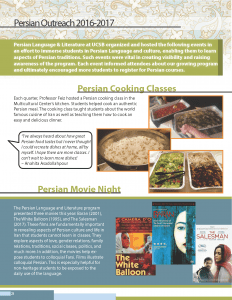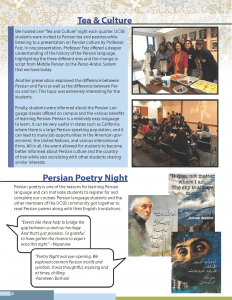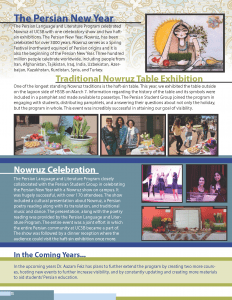Click “AGENDA” to switch to calendar view.
Subscribe








Click “AGENDA” to switch to calendar view.
There are no upcoming events to display at this time.
Newsletter 2016-2017- Persian Language and Literature in the Department of Religious Studies
